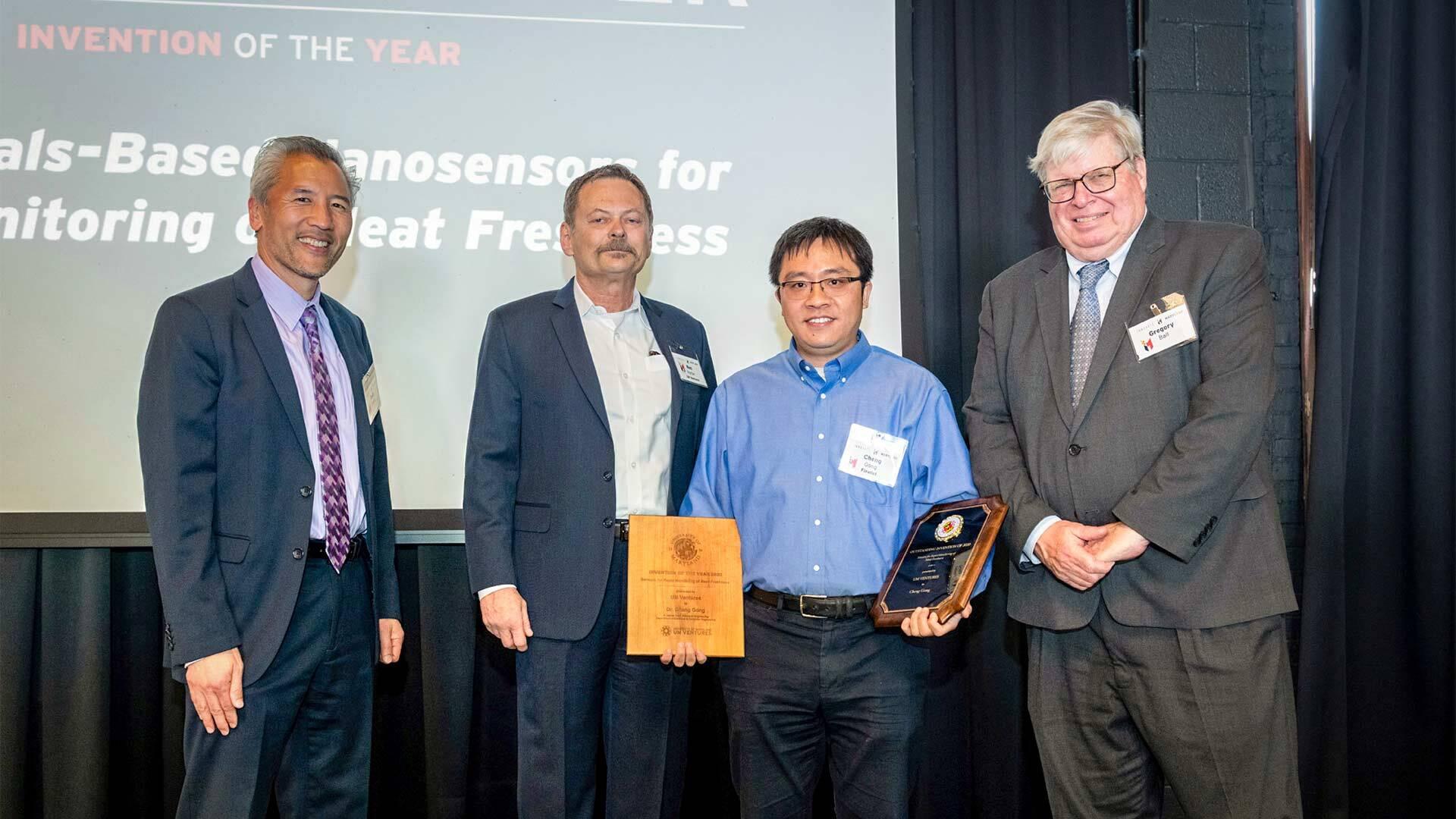
Photo by Mike Morgan
The U.S. Department of Agriculture (USDA) estimates that in the United States, up to 30-40 percent of the food supply is wasted. Food waste occurs due to many factors, whether from issues at the milling, drying, and transportation challenges at the farm level or storage malfunctions or over ordering issues at the retail level, to name a few. To help combat food loss, the USDA and the U.S. Environmental Protection Agency (EPA) set a goal in 2015 to reduce food waste by 50 percent by 2030. A University of Maryland (UMD) researcher’s innovation could help achieve this goal.
Cheng Gong, assistant professor in the Department of Electrical and Computer Engineering at the A. James Clark School of Engineering, has developed “Sensors for Rapid Monitoring of Meat Freshness” that go beyond use-by dates to help reduce food waste at the retail and consumer level. The innovative, sensor-based technology allows stores, warehouses, and other end-users to accurately determine the freshness of meat.
Gong used graphene, a two-dimensional quantum material, to develop a sensor that can determine the presence of specific meat degradation emissions.
“In the early stages of spoilage, meat produces an odor,” says Gong. “That odor can be ‘smelled’ by our nanosensors.”
This new sensor system of preventing food waste surpasses use-by and expiration dates in a manner that is cheap, effective, and efficient, with the potential to ultimately reduce food loss and waste beyond meat, if applied to other food items, too.
Gong’s research is supported in part by the Maryland Innovation Initiative, and has been published in Applied Physics Letters and ACS Sustainable Chemistry & Engineering.
“Sensors for Rapid Monitoring of Meat Freshness” was named the overall Invention of the Year on May 3, 2022 at Innovate Maryland, a campus-wide celebration of innovation and partnerships at UMD.
